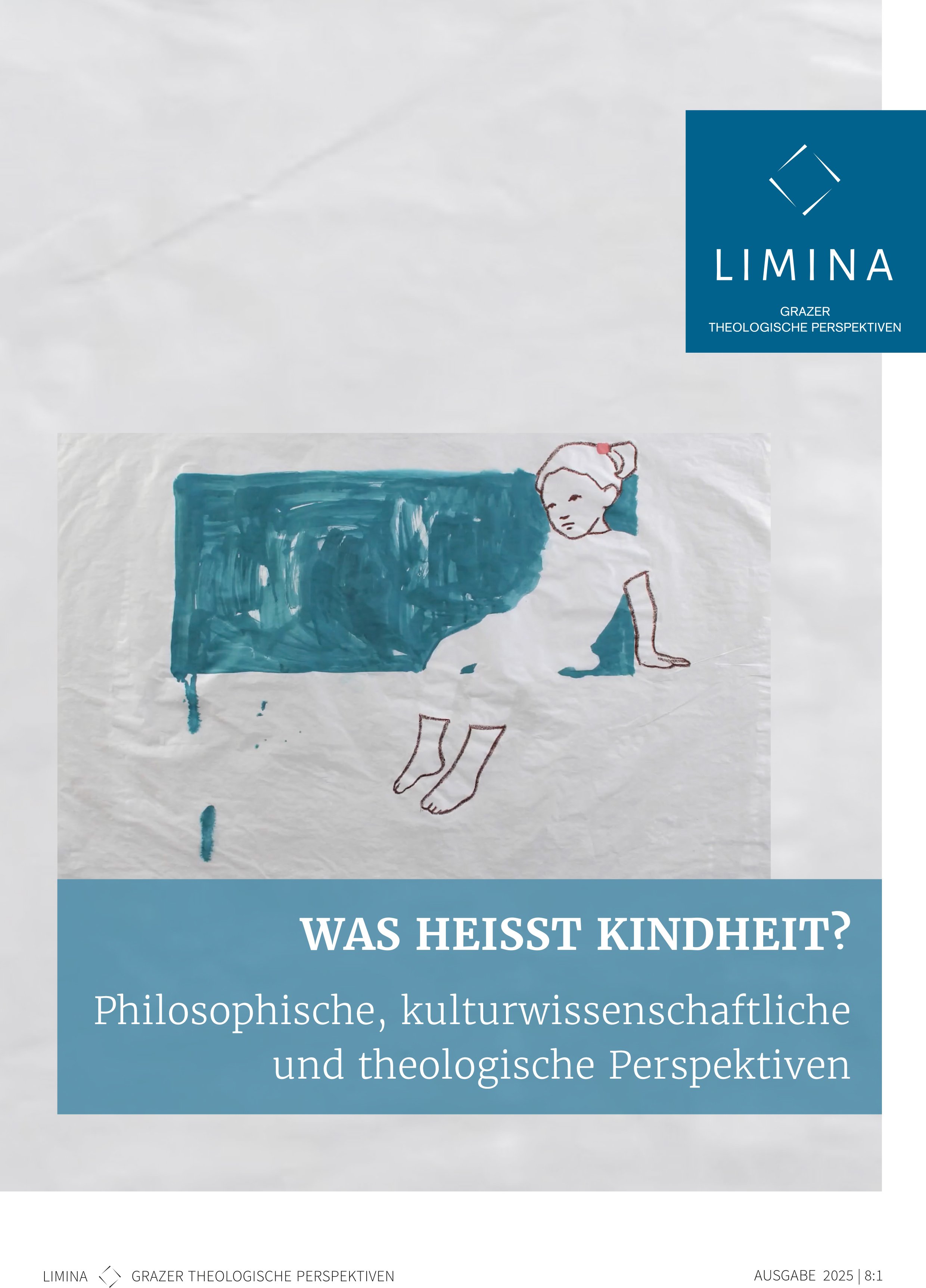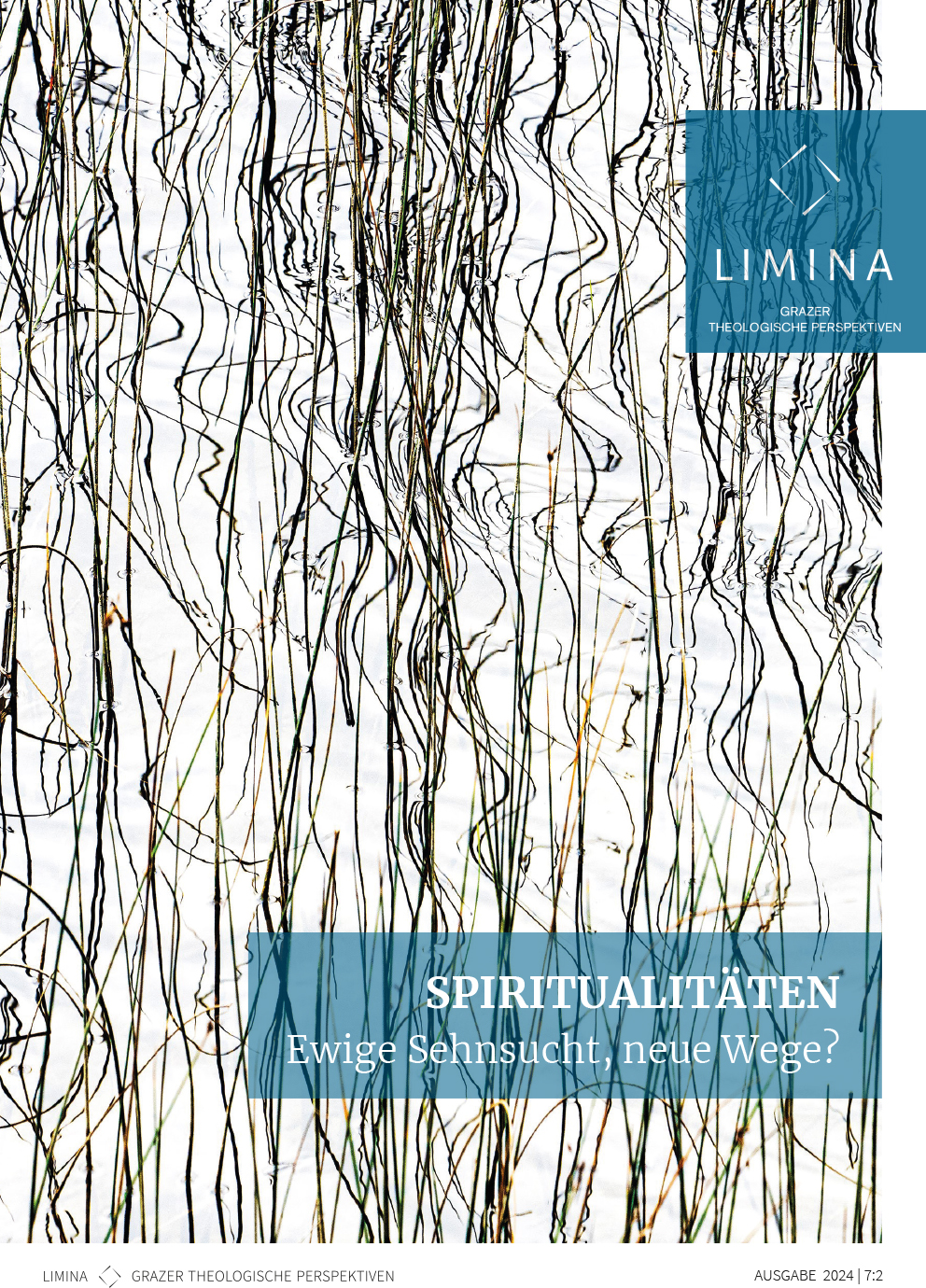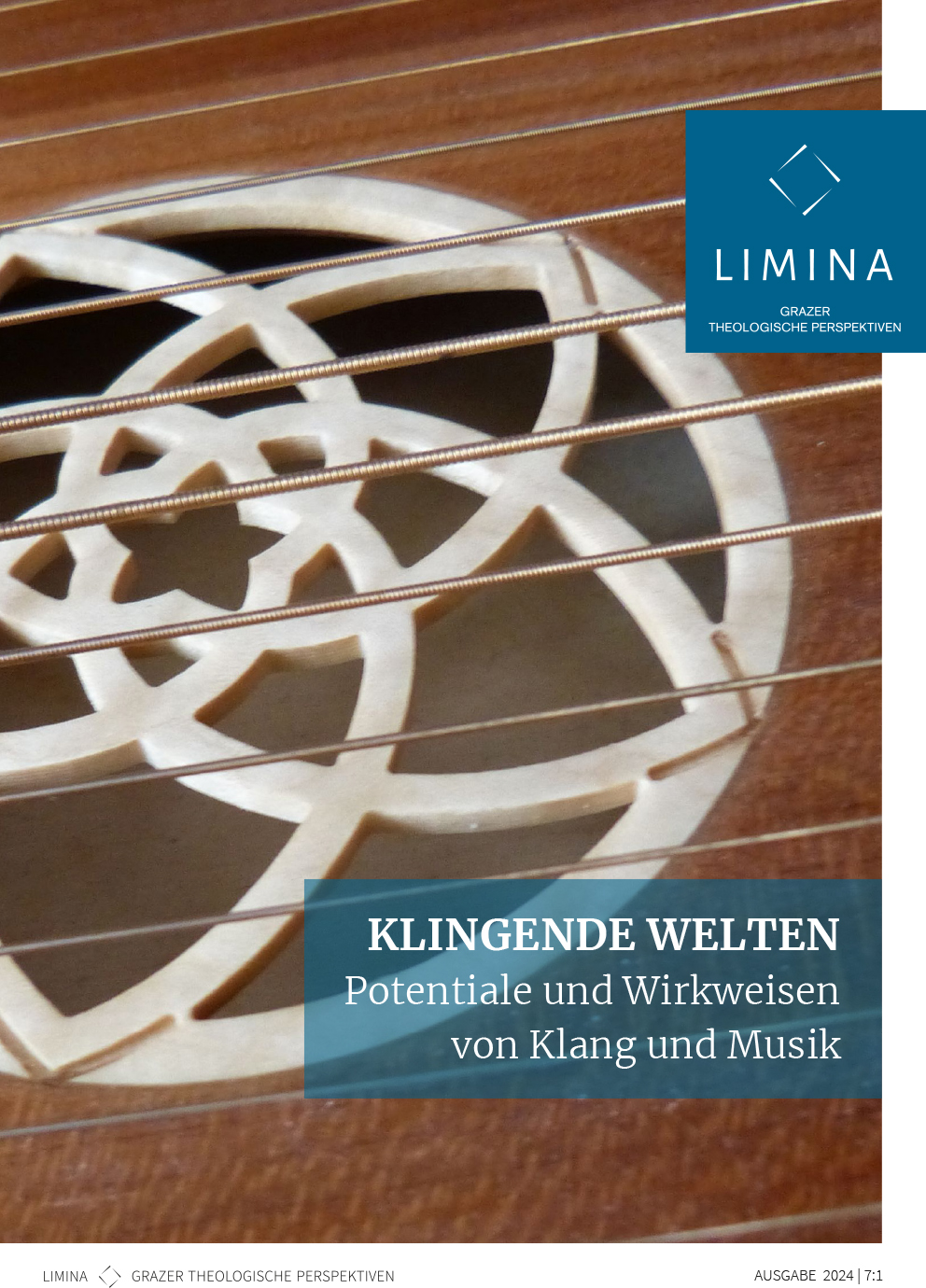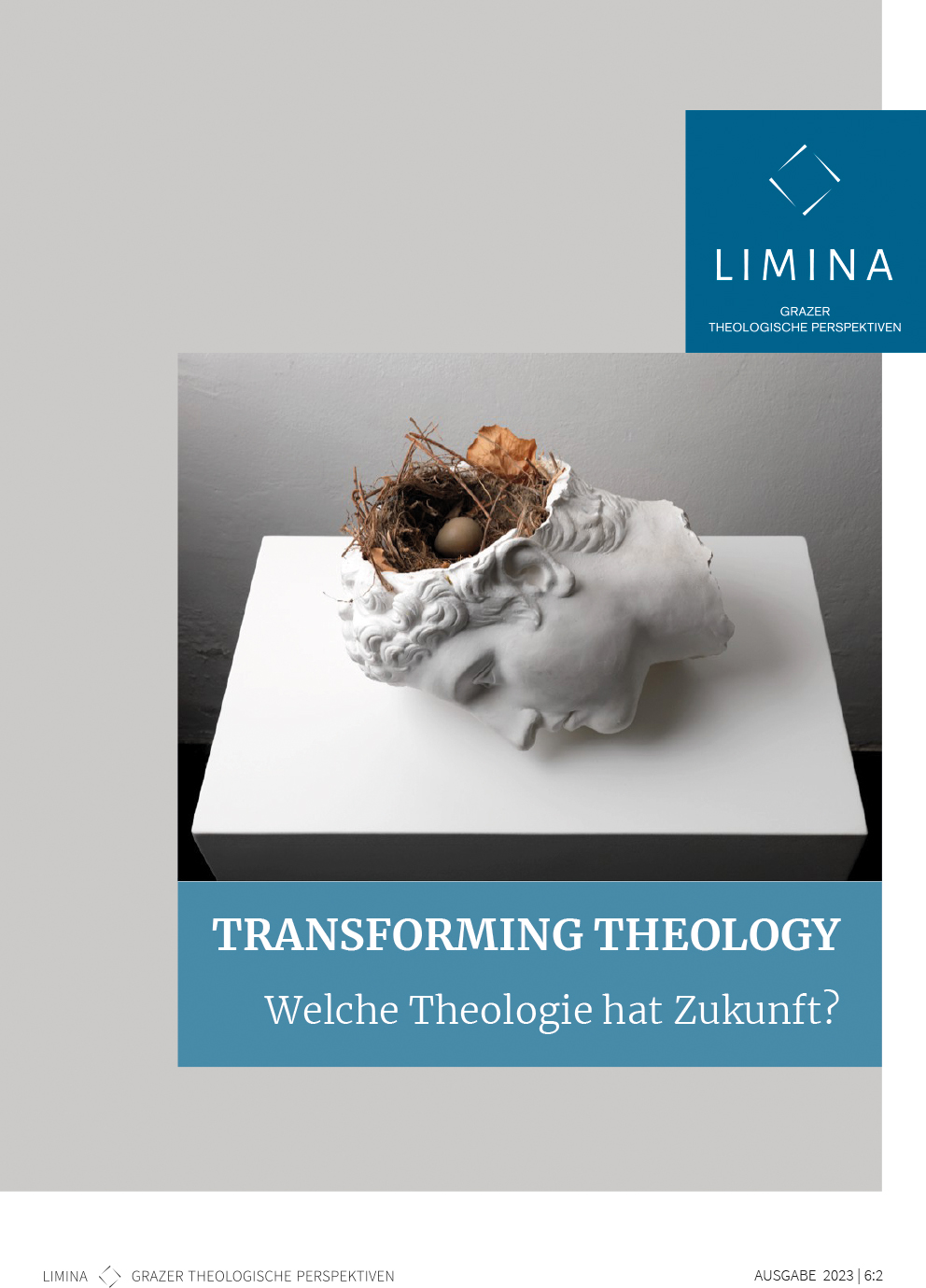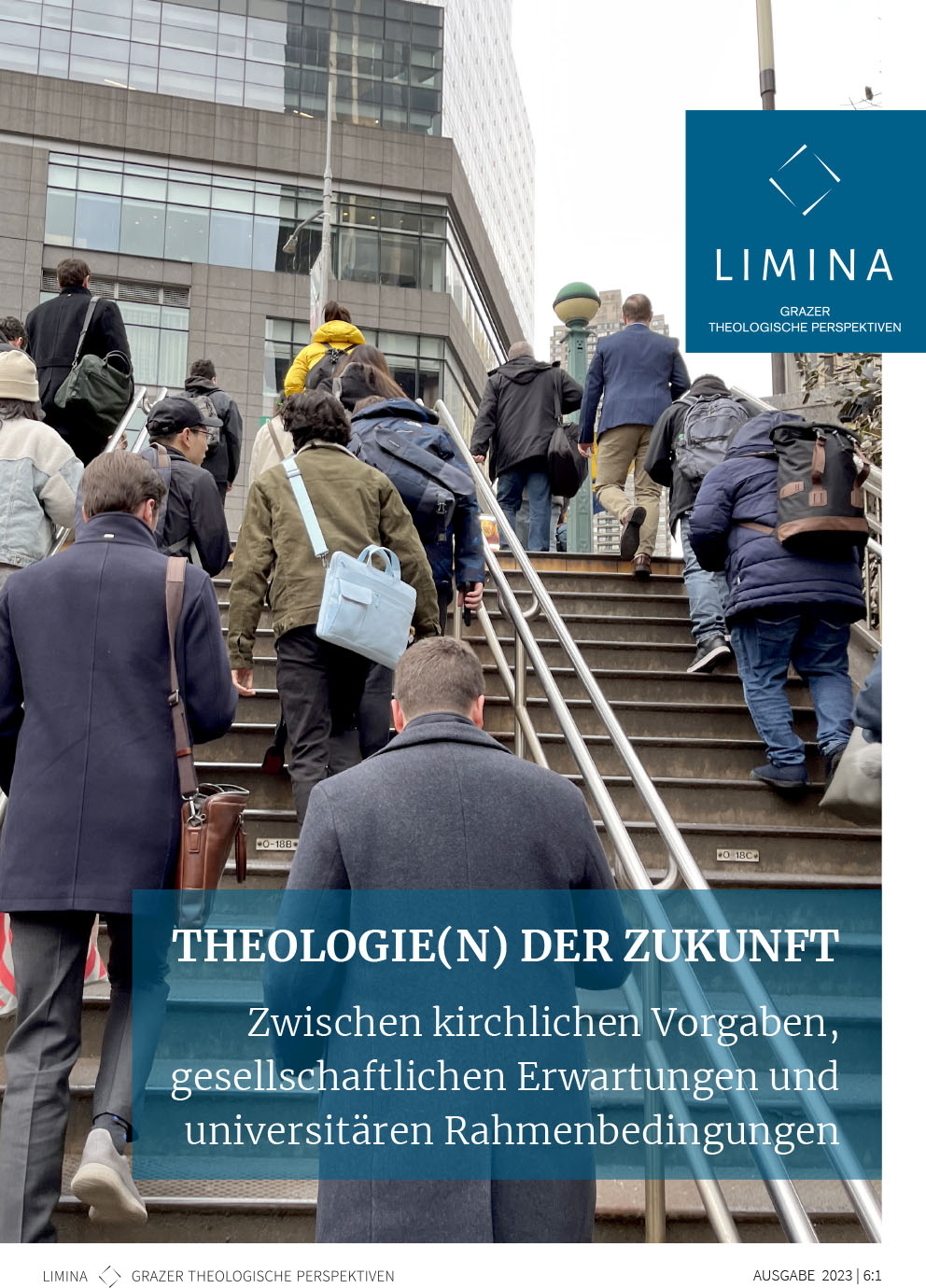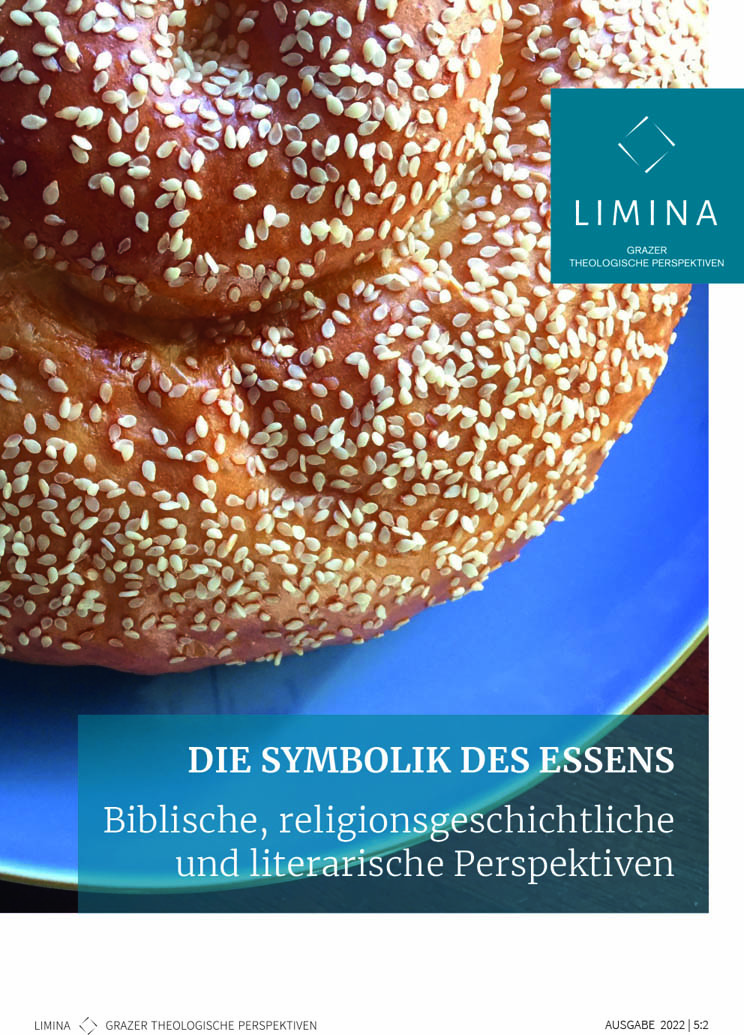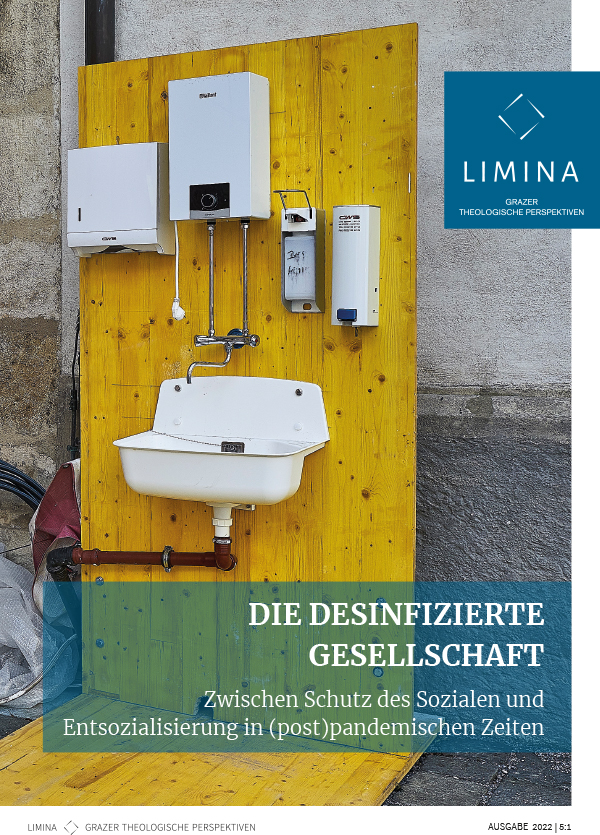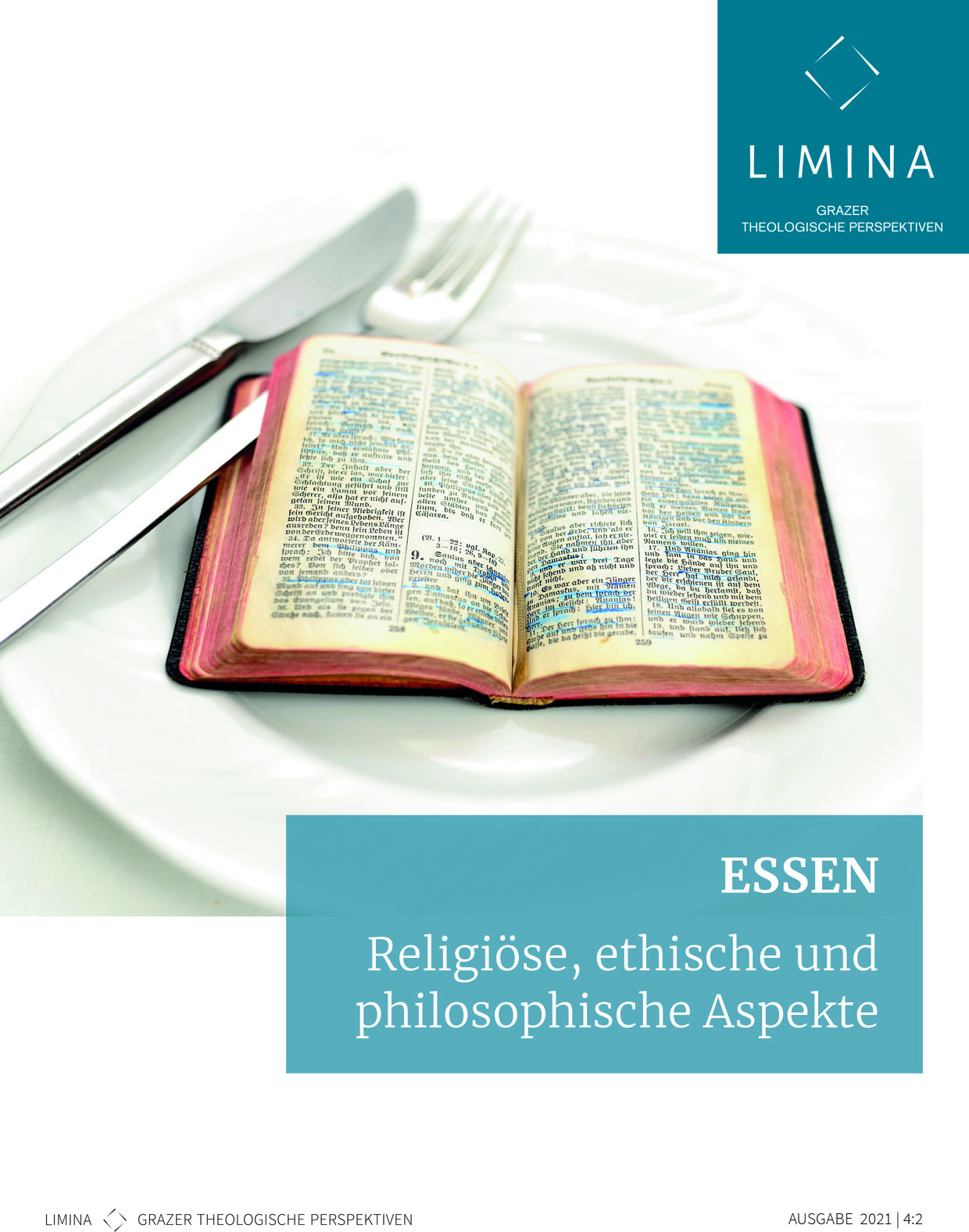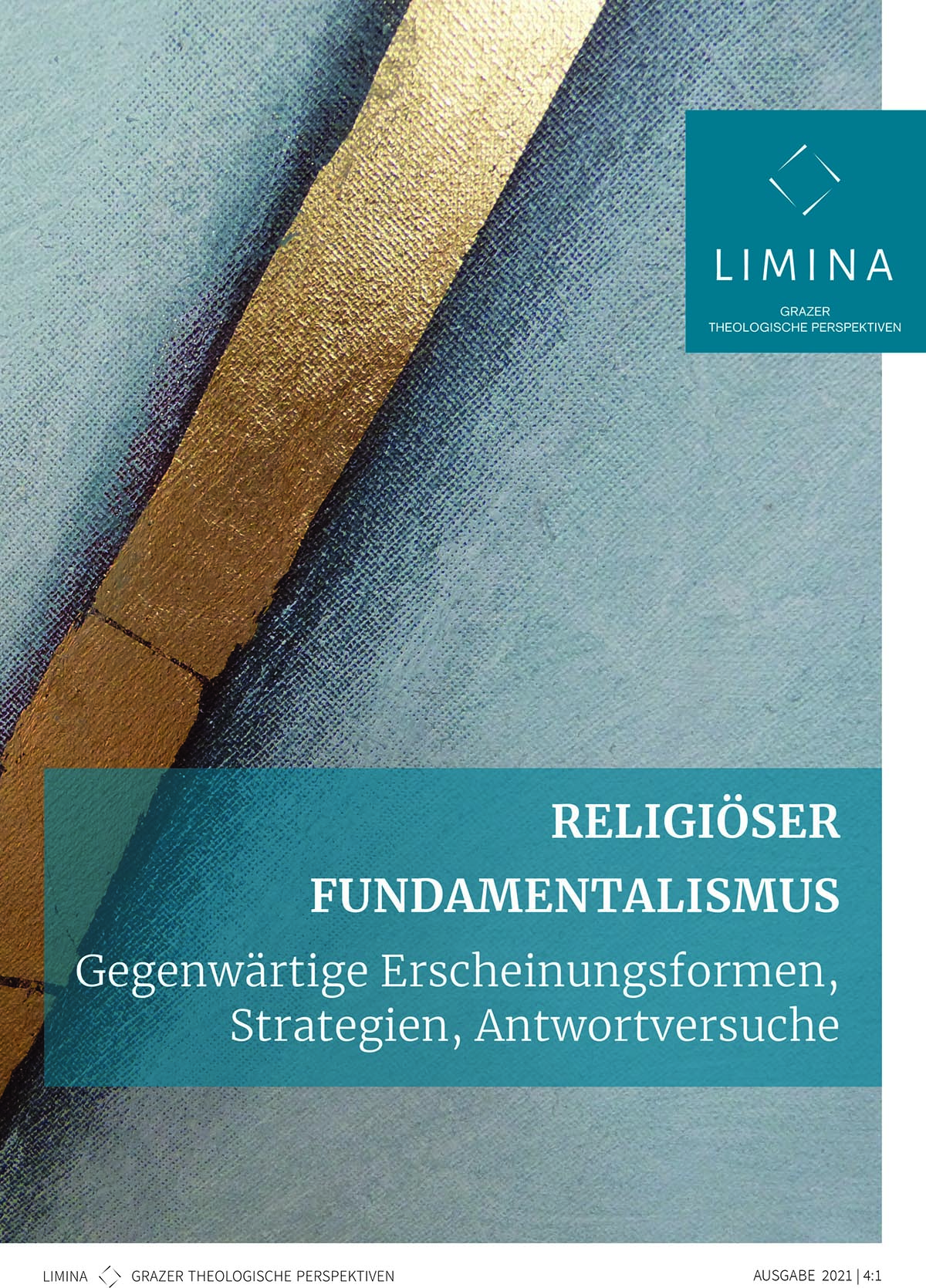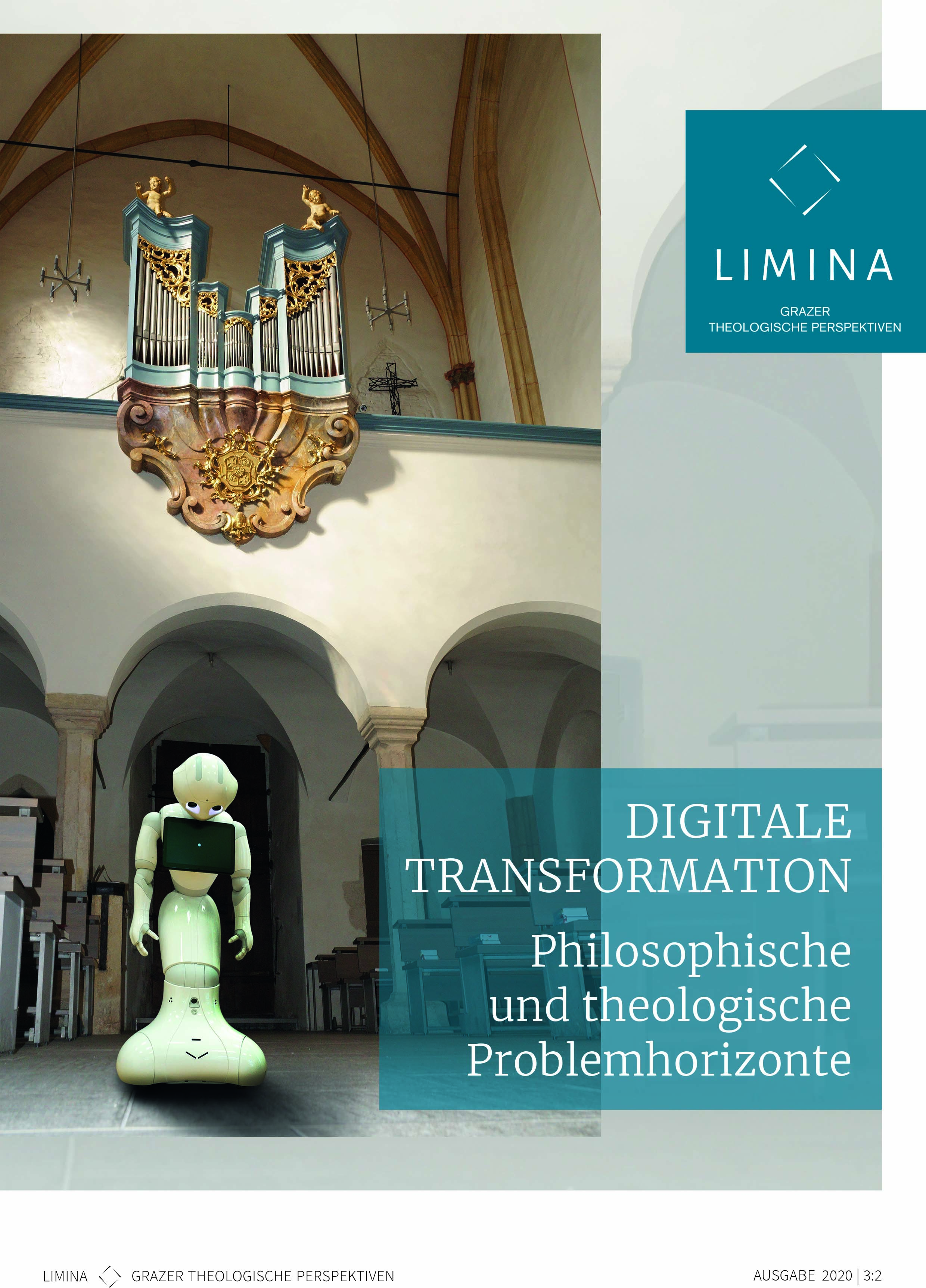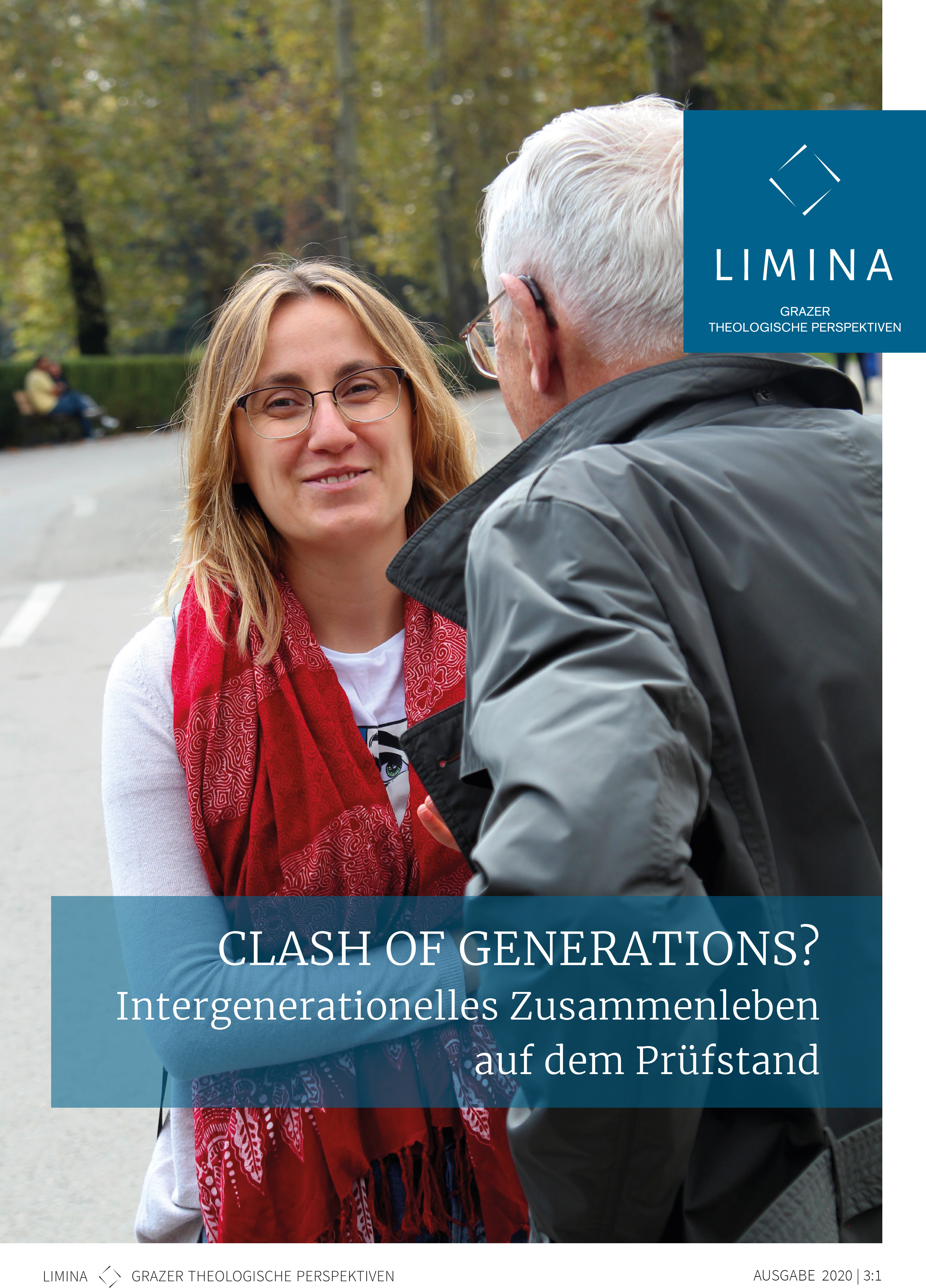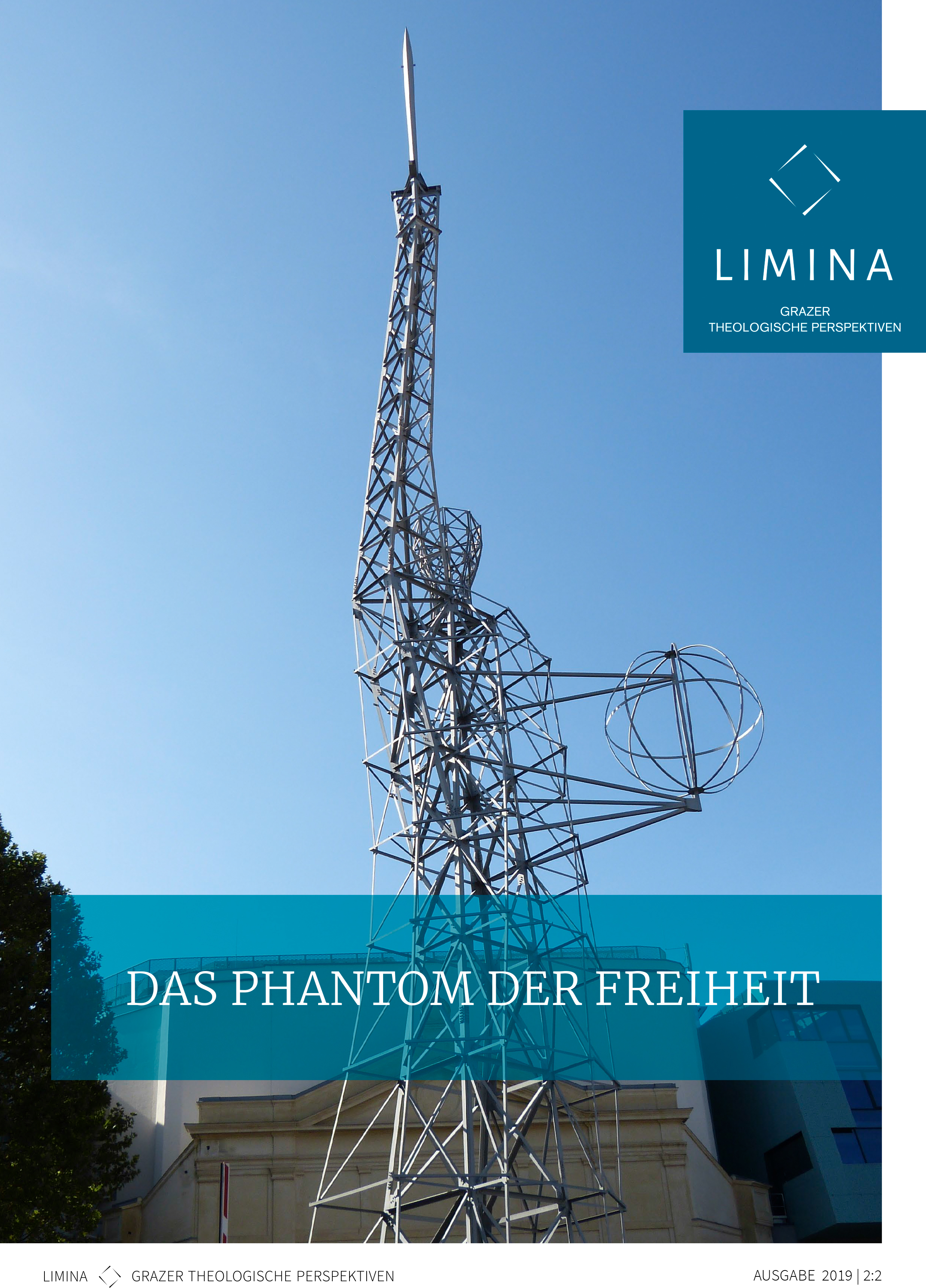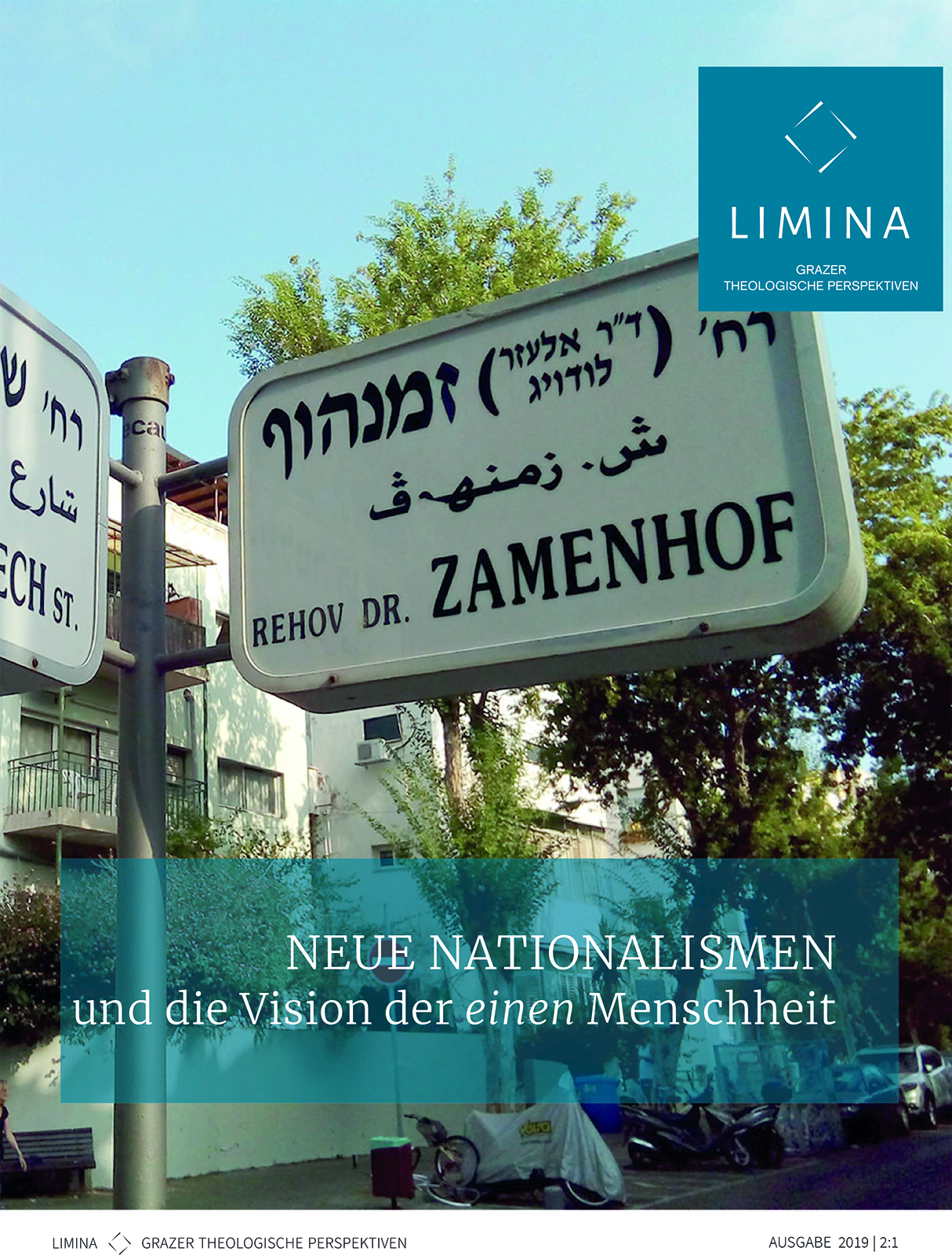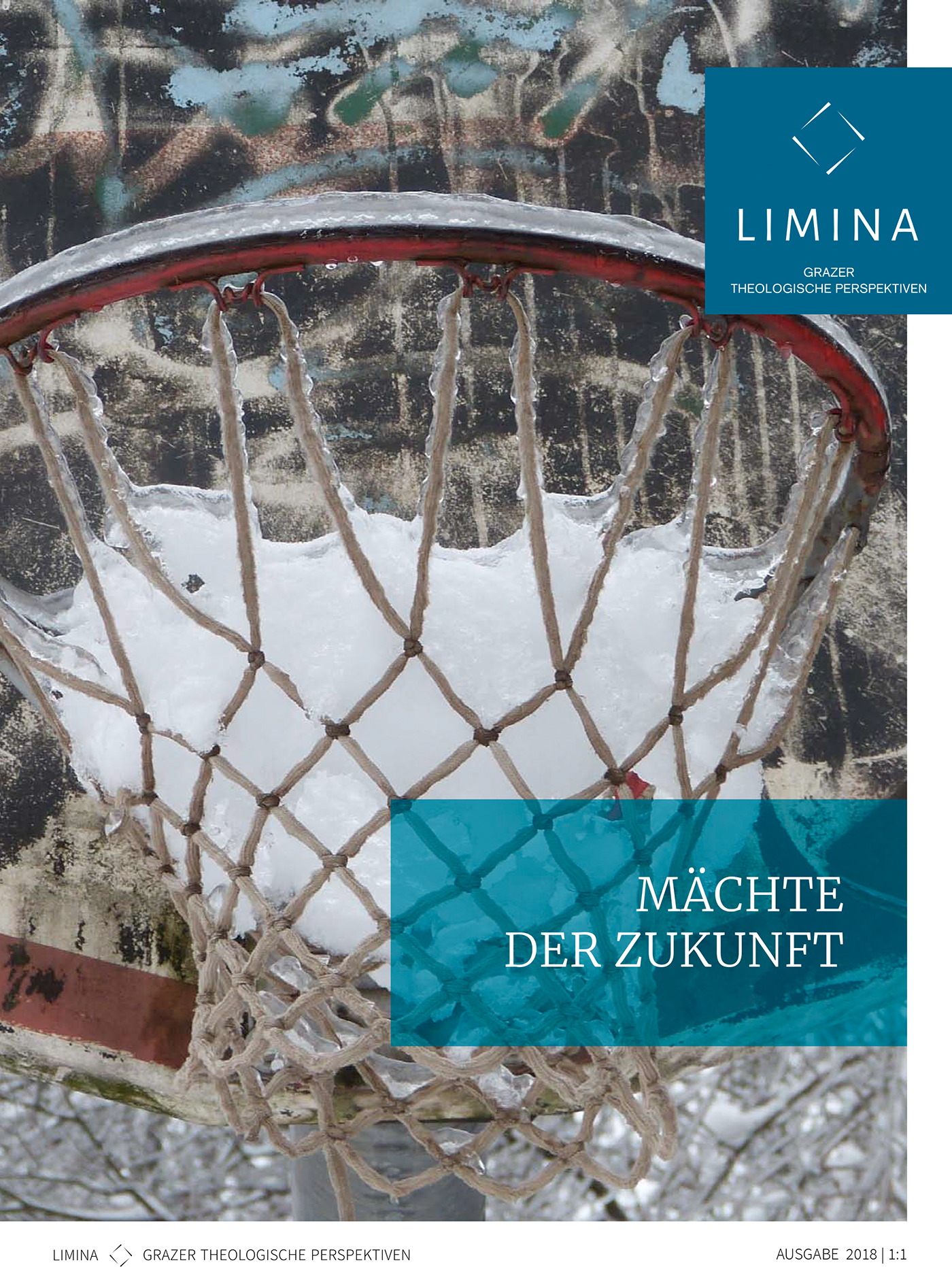Peace in Times of Political and Moral Uncertainty
Vol. 8 No. 2 (2025)
Following the current ecological, political, miliary, social as well as technological developments, our understanding of peace also requires constant rearticulation. While the concept of peace is entangled with certain religious and political roots, it also needs to ideas adapt in order to meet new realities and changes. At the same time, these processes are caught between idealistic concepts of peace, such as positive peace or liberal peace, on the one hand, and the realistic possibilities and limitations of distinct and practically feasible peace practices on the other hand.
LIMINA addresses these issues from the perspectives of theology, political science, the humanities, and peace studies.
What is childhood? Philosophical, cultural and theological perspectives
Vol. 8 No. 1 (2025)
‘Childhood’ is not a pertinent question of theology – at least at first glance. Looking closer, however, the term ‘child’ appears in many theological texts and contexts, particularly with regard to what it means to be a child and the concept of ‘children of God’. While these references are often used in a metaphorical rather than investigative sense, this issue of LIMINA – Theological perspectives from Graz specifically seeks to extract and extrapolate aspects of childhood(s) and child-being that may inspire as well as irritate theological thought and research.
Spiritualities. Forever longing, forging new paths?
Vol. 7 No. 2 (2024)
Our longing for inner and external peace, for social justice and a good life for all, and for purpose and happiness can motivate vastly different actions in humanity’s and individual’s search for it. Primarily, this searching translates into sets of values and beliefs that are often tied to religious ideas and practices, or represent a religious expression in themselves.
Spirituality, however, is not to be equated with practicing a religion. The growing popularity of the term spirituality along with a continuously expanding offering of spiritual concepts, guides and practices raise questions within religious studies, theology and philosophy about an epochal shift in the relationship and interplay between worldviews, religious beliefs, denominational faith and different spiritualities.
Resonating worlds. The possibilities and effects of sound and music
Vol. 7 No. 1 (2024)
Issue 7:1 of LIMINA – Theological Perspectives from Graz sets out to discover the possibilities and effects of sound, rhythm and music. The plethora of articles combine current ideas in music and sound research with insights from art and cultural studies and add reflections from a philosophical and theological dimension. The authors seek to understand how sound and music affect and effect our perception of the self as well as the world, and whether auditory and musical experiences can open up and transmit transcendence. They explore the potential linguisticality of music as well as its power to (re)shape the order of time and rhythm.
With this multi-dimensional exploration of “resonating worlds”, LIMINA hopes to reflect the profound effect and universal presence of music within art and culture, personal and societal approaches and interpretations of life, as well as religious expression and transcendental experiences. Music “opens up a singular world within our lifeworld […]. The musical idea remains an awe-inspiring mystery – astonishing as the miracle of all miracles: that there is being.” (Günther Pöltner)
Transforming Theology. What theology has a future?
Vol. 6 No. 2 (2023)
Can theology retain “an awareness of what is missing” (Habermas) and offer its reflexive ability today and in future?
This was the closing question we left you with at the end of our last issue, and it is the starting point for this issue of LIMINA. A further nine articles took up the mantle of (re)thinking theology in the face of current and future realities, proposing new ideas and approaches as we look at and to theology in the future. What emerges from these contributions is that theological discourse still offers important reflexive and symbolic resources for how we experience and explore present complexities and ambivalences. At the same time, they also demonstrate the willingness to critically reflect on one’s own theological thinking and acting.
Future(s) of Theology. Between ecclesial demands, societal expectations and academic frameworks
Vol. 6 No. 1 (2023)
The position and understanding of theology as an academic discipline has seen fissures breaking open, theological discourse appears to have largely lost its intellectual and cultural relevance. The reflective and interpretive functions of theology are trivialities to socio-political minds, even at times of crises. They are even superficially perceived as ideological spaces of solace rather than recognised for their predictive capabilities that can support us in navigating change, resistance and protest. It requires vision and action to open up new ways of (re)thinking theology that reflect current and future realities.
LIMINA 6:1 presents twelve different perspectives on theology’s future potential as an academic discipline in response to changing societal, academic and ecclesial circumstances.
The symbolism of food. Biblical, religious historic and literary perspectives
Vol. 5 No. 2 (2022)
Food is about much more than simple nourishment. The basic human need for sustenance for survival has always been imbued with symbolisms, both within religious and worldly contexts.
This issue of LIMINA is dedicated to Biblical aspects associated with food and drink and further examines Jewish meal traditions. The final article offers insights into refugee experiences and their literary expression through the metaphor of food as told by the US-Austrian author Lore Segal. The current issue is a continuation of LIMINA 4.2 (2021) with the title Food. Religious, ethical and philosophical aspects, which already served a rich plethora of essays.
A disinfected society. Stitching and unstitching social threads in (post-)pandemic times
Vol. 5 No. 1 (2022)
Current global developments evoke apocalyptic visions and create multi-dimensional insecurities that even the most stringent safety and security policies seem to be unable to appease. In the face of the most challenging global crisis since the Second World War, Etienne Balibar urges us to confront the “absolute uncertainty of the situation we find ourselves in”, and the moral and political ripples that are yet to unfold. Phenomena that have emerged already are new forms of subjugation and humiliation, which are eroding the last remnants of security, trust and guidance, leaving us exposed to the obscure and inhospitable potential of infected minds and bodies. In every corner of the world, people feel powerless against an inescapable shared fate, shrouding humanity in unprecedented passivity and posing fundamental challenges to our concept of freedom.
In this sense, LIMINA examines pertinent questions of an immunised/disinfected society from an interdisciplinary perspective. How does the societal experience of an increasingly intensifying crisis impact the dialectic of freedom and safety? What happens to a community when convivial exchanges, joyous adventures, connection and solidarity are replaced by basic survival and by efforts to achieve and maintain perceived permanent safety and sterility? Which alternative strategies and ways of societal organisation and living can emerge in the ambivalences of this crisis? What will our world look like “post disinfection”?
Food. Religious, ethical and philosophical aspects
Vol. 4 No. 2 (2021)
Eating and drinking are base requirements of human life, yet they are also an expression – if not the source of – social, cultural and religious identities. Food unites us and food divides us. Table manners and religious dietary rules define and bond social and faith communities. Additionally, globalisation has brought a new dimension to these cultural traditions of eating and drinking with a plethora of personal dietary lifestyles. However, even in predominantly secular societies, the fundamental link between food and religion remains.
This issue explores religious and cultural contexts and the central role food and drink play in creating and expressing meaning in our personal as well as collective lives.
Religious fundamentalism. Current manifestations, approaches and solutions
Vol. 4 No. 1 (2021)
Religious fundamentalism is on the rise. This rise is not limited to geopolitically charged conflict zones but also emerges in Western democracies. There is no politically neutral space from which to explore this pervading phenomenon and analyse its dynamics. LIMINA broaches the subject and does not shy away from attempting a delicate balancing act between context-sensitive analyses and practise-oriented engagement.
The aim of this edition is to analyse religious radicalisation in its current form, to shed light on its motives, goals, patterns and strategies, and to discuss theoretical and practical approaches to address fundamentalist trends.
Digital Transformation. Philosophical and theological approaches
Vol. 3 No. 2 (2020)
The “digital transformation”, unstoppable in its accelerated advance, has become a ubiquitous presence in contemporary culture. Now it is up to philosophy and theology to ask salient questions and develop relevant approaches to understand and contextualise this transformation and its fundamental characteristics.
The current issue of LIMINA discusses a number of selected topics directly relevant to individuals who live in such a high-tech and digitised civilisation. It asks vital questions about the reshaping of individual and collective criteria for humanity in the transformative grip of the digital turn.
Clash of generations? A question of intergenerational coexistence
Vol. 3 No. 1 (2020)
Even before the emergence of the new coronavirus, intergenerational relationships have undergone a significant transformation over the last decade in Europe. Demographic changes and migration have triggered a shift away from intergenerational living under the same roof in favour of much more heterogeneous generational relationships. This diversification in the societal makeup poses challenges for the government as well as social care and health care systems, but also for individuals.
The spectre of freedom
Vol. 2 No. 2 (2019)
The story of “modernity” is characterised by freedom. Thus the primacy of truth has been superseded by the primacy of freedom, making freedom the decisive category of the democratic subject. But in today's disenchanted world with "thinning" traditions, the free subject is forced to make its own decisions without the collective, and in this way has become an entrepreneur who has to determine hisor her own biography.
This edition of LIMINA asks which concepts of freedom theology, philosophy, law, social sciences and economics currently generate and why freedom has become a risk for many.
New nationalisms and the vision of a shared humanity
Vol. 2 No. 1 (2019)
Die Vision einer friedlich geeinten Menschheit, die sich sowohl in der Menschenrechtsdeklaration der Vereinten Nationen als auch in den Grunddokumenten der Weltreligionen findet, verliert angesichts einer neuen Welle nationaler Abgrenzungs- und Durchsetzungsbestrebungen an gesellschaftlicher und politischer Potenz. In unterschiedlichem Maß und auf vielfältige Weise sind auch Religionsgemeinschaften und Theologien an diesen Entwicklungen beteiligt, in sie verstrickt oder in kritischer Opposition gegen sie tätig.
Wir fragen nach den politischen, religiösen und theologischen Optionen bzw. Strategien, die sich gegenwärtig zwischen den Spannungspolen neuer Nationalismen einerseits und globaler, menschheitlich ausgerichteter Praxis und Politik andererseits auftun.
Future Forces
Vol. 1 No. 1 (2018)
„Mächte der Zukunft“ analysiert aktuelle gesellschaftliche, kulturelle und religiöse Machtkonstellationen.
Welche Mächte bestimmen heute und morgen die sozialen, politischen und ökonomischen Verhältnisse? Wohin steuern rituelle Praktiken in postsäkularer Zeit? Was lässt sich aus biblischen Texten zur Überwindung ungerechter Macht- und Ohnmachtsverhältnisse lernen? Welche Machtverschiebungen und friedenspolitischen Herausforderungen bringen die globalen Flucht- und Migrationsbewegungen mit sich? Welchen Machtfragen muss sich die römisch-katholische Kirche stellen, und wie können religiöse Bildungsprozesse im Kontext pluraler Gesellschaften gestaltet werden? Mit welchen Machtszenarien konfrontiert uns die fortschreitende Digitalisierung? Welche ethischen Problemstellungen werden durch die rasanten Entwicklungen in der Biotechnologie aufgeworfen?
Neben der Bearbeitung dieser Fragen finden Sie auch einen programmatischen Text zum Profil von LIMINA, der neuen Fakultätszeitschrift der Katholisch-Theologischen Fakultät Graz.


